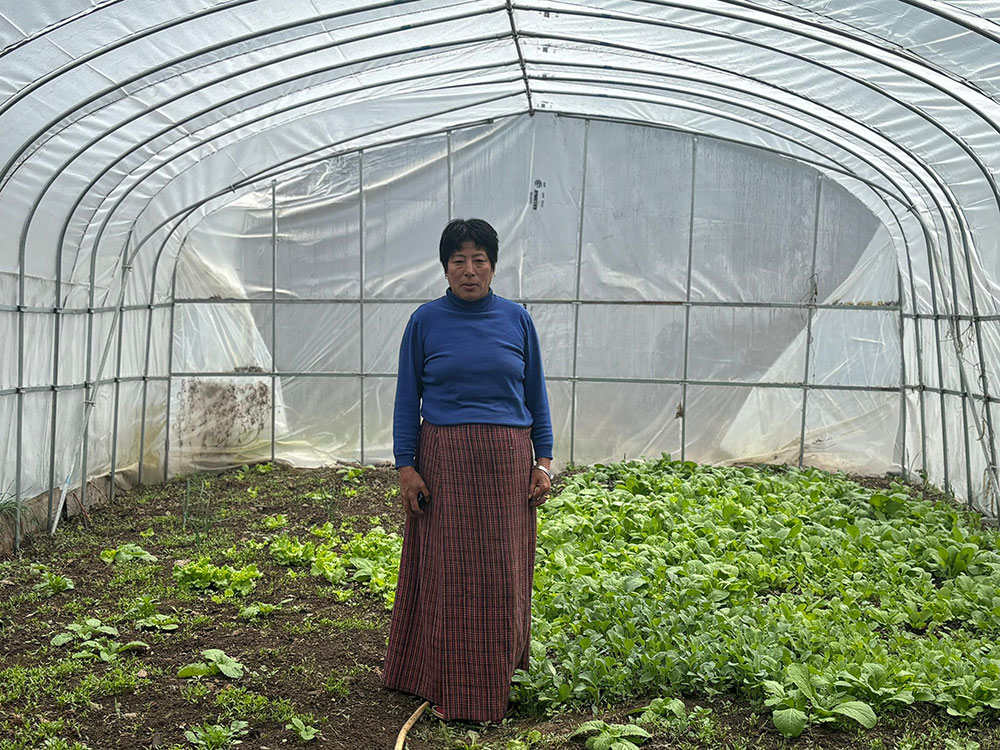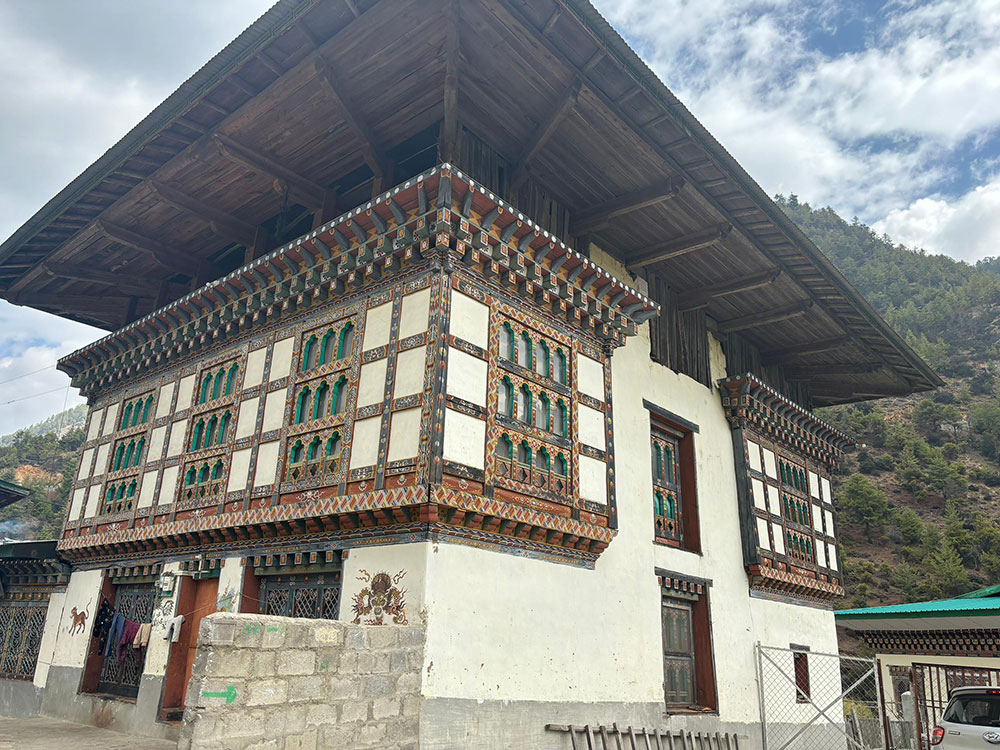Dechen Dolkar
The homestay business in Haa has been reshaping the roles of women in rural Bhutan.
Chimi Lham, a 55-year-old homestay owner in Haa, reflects on the transformation her life has undergone since she commenced her business.
In 2011, as a mother of two, Chimi, embarked on her homestay venture with assistance from the Royal Society for the Protection of Nature (RSPN) and the Department of Tourism.
This support significantly enriched Chimi’s life.
Initially, Chimi admitted to feeling hesitant about venturing into something new and managing with limited resources. Prior to starting her homestay, she operated a small shop selling groceries from her two-story traditional house.

Chimi Lham
Chimi explained that running a homestay entails fundamental tasks such as cleaning, making beds, and preparing meals, all while ensuring an authentic experience for guests.
Chimi uses the first floor for guest rooms, reserving the second floor for the kitchen, altar, and bedrooms.
She said that initially they were allowed to have only two rooms. “I cannot accommodate more than three guests in two rooms and it was difficult for the guide and divers to get room.”
She said that they requested the Department of Tourism to allow more rooms and now they are allowed to have four rooms.
With the addition of new rooms and modern amenities, including the conversion of traditional Indian toilets to Western-style facilities, Chimi ensures that her guests’ comfort is always a top priority.
At Chimi’s Homestay, guests immerse themselves in a warm and inviting atmosphere where Bhutanese culture permeates every aspect of their experience.
Chimi serves a variety of fresh vegetables from her greenhouse, including spinach, chili, cabbage, and lettuce.
She mentioned that not having to purchase vegetables helps her save on expenditures.
She said that the dzongkhag administration provided greenhouse materials at a subsidized rate specifically for homestays in the area.
Despite encountering challenges initially, such as having few guests, Chimi’s dedication ultimately paid off as more visitors were drawn by the promise of an authentic Bhutanese experience.
She said that tourists were interested in joining them to prepare meals, and she enjoys teaching them how to make traditional Bhutanese dishes.
Chimi said that, thus far, the favourite meal for tourists who enjoy spicy food has been a simple dish made from dried chili mixed with tomato and onion, ezey, accompanied by suja, a traditional butter tea.
Beyond just providing a source of income for her household, Chimi’s homestay has become an example hope for the local community.
It demonstrates that with perseverance and support, even the smallest beginnings can lead to positive change.
Chimi said: “I meet people from different parts of the world, and my husband often helps me prepare dinner.”
Homestays have been instrumental in empowering women in rural areas by providing access to finance while enabling them to manage household responsibilities.
According to Chimi, this year alone, more than eight groups of tourists have stayed at her homestay.
Chimi charges Nu 1,100 for each room, along with a 10 percent service charge.


